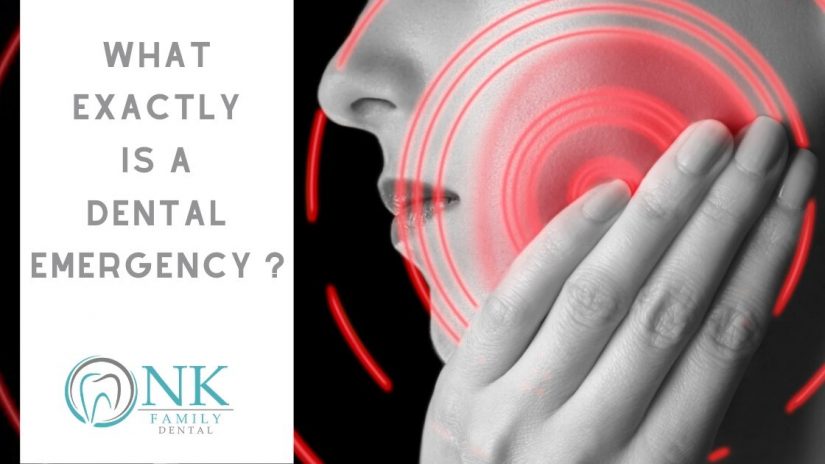
NK Family Dental’s top priorities are the health and safety of our patients. We want you to know that we are here for you during these challenging times, and are proud to be a member of our strong Chicago community. With that, we want to focus on dental emergencies in order to educate you about the signs of a dental emergency and what to do if you have one. Keeping calm and knowing what to do can make the difference between escalating a bad situation or getting treatment that ultimately results in a good outcome.
The ADA’s Stance on Elective Procedures
Following the recommendation of the American Dental Association, NK Family Dental is currently only treating emergency patients in our office while COVID-19 precaution recommendations remain in place from the World Health Organization and the Centers for Disease Control, along with the Chicago Stay at Home Order. Therefore, all elective dental procedures are currently postponed, including routine dental checkups. However, our office is still taking phone calls to answer questions, as well as schedule emergency patients.
As healthcare and dental professionals, NK Family Dental stands by ADA President Chad P. Gehani’s March 16 statement:
“Concentrating on emergency dental care will allow us to care for our emergency patients and alleviate the burden that dental emergencies would place on hospital emergency departments.”
How to Know If It’s a Dental Emergency
Recognizing the signs of a dental emergency is the most important step to receiving timely treatment. Our blog post, “How to Know If It’s a Dental Emergency,” covers this in detail. However, we’ll recap the most important signs here.
Colgate defines dental emergencies as “any trauma to the mouth that may cause bleeding and lacerations to the gums, and dislodge or fracture teeth, and may require immediate medical attention.” As you can see, this definition leans on the broad side. To help identify examples of dental emergencies, the Texas A&M University Health Science Center lists the following:
- Tooth fractures or sudden tooth loss
- Oral infections, especially when accompanied by severe pain and swelling
You may be wondering, “But, what if I have slight pain or discomfort? Does that count as a dental emergency?” The best answer will be found by calling your dentist to discuss your symptoms. Generally, though, conditions such as minor toothaches or tooth sensitivity are considered urgent, but not immediate emergencies.
Given the current situation with COVID-19, we strongly advise to NOT seek treatment in a hospital emergency room. Hospital ERs are not set up to care for broken or chipped teeth, and the overwhelming demand on hospital staff and resources due to COVID-19 — as well as increasing your chance for exposure or exposing others — will, frankly, place your treatment at a very low priority. Trauma to the lower face, such as a broken jaw, is a medical emergency, which would necessitate treatment at an ER.
What to Do in the Event of a Dental Emergency
Your immediate steps depend on many factors, including the nature of your emergency, your dentist’s availability, or your proximity to the nearest dental office. If you are able, call your dentist first to see how they recommend treating the condition and to set up an appointment. Even if it’s after regular business hours, your dentist’s office may have an emergency number you can call to contact an on-call emergency dentist. Calling your dentist first ensures that you will be given the best recommendation for fast treatment.
Use Common Sense
Considering that access to your regular dentist is extremely limited during the COVID-19 pandemic, be especially vigilant about your oral health and careful of your actions to prevent a dental emergency in the first place. Don’t chew ice, bite down on hard candies, nuts, etc., or use your teeth to open bottles. Of course, don’t participate in contact sports (which will also greatly increase your chances of becoming infected).
Just because you may be able to be treated during this time doesn’t mean that you should come into contact with others more than absolutely necessary. Unfortunately, the risk runs both ways. You could be exposing your dentist and other staff members to the virus as an asymptomatic carrier, or during the early stages of COVID-19. Be safe, and help keep those in your community safe, as well!
We’re Here for You
As your preferred Chicago dentist office in Logan Square, NK Family Dental would like to emphasize that we are here for our patients and their families. If you have a dental emergency, contact us immediately to set up your NK Family Dental Emergency Exam. For non-emergency questions, we are also still accepting phone calls during our office hours. Your oral health is important, and our staff is committed to providing essential care during this time.
